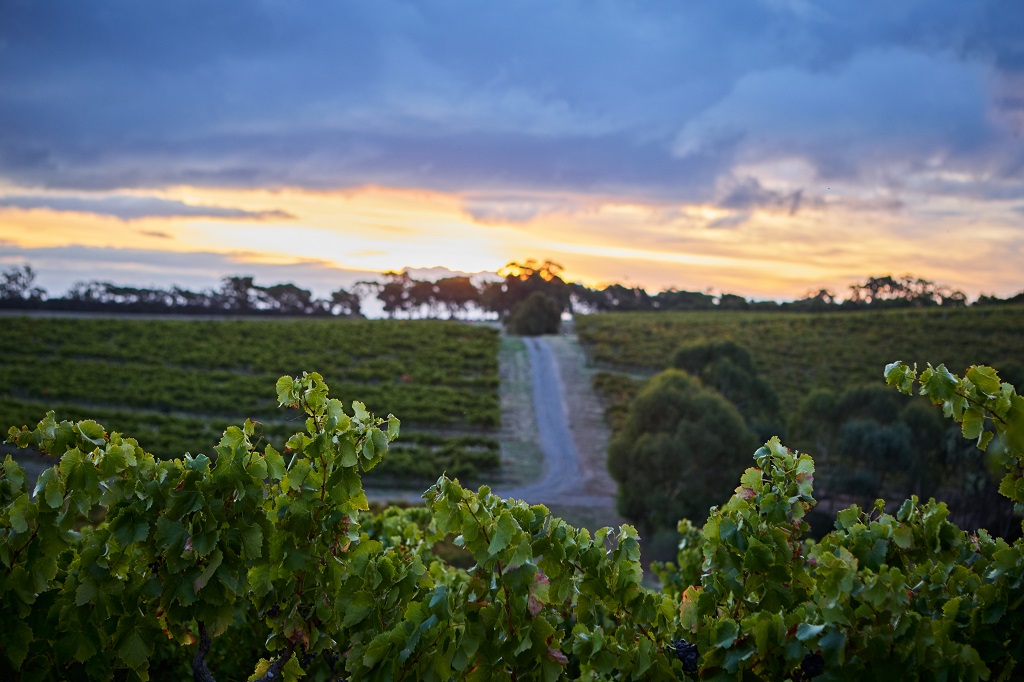Wines will be made with “the same grapes from the same regions”, Vinarchy said. Pictured: Hardy’s Vineyard in McLaren Vale. Image courtesy Vinarchy
Vinarchy has announced that it will move production from both its St Hallett winery in the Barossa Valley and its Hardy’s Tintara winery in McLaren Vale to Rowland Flat in the Barossa Valley, casting doubt on the future of these facilities.
Vinarchy said it will invest $30 million into its Rowland Flat site, to establish it as “a centre of excellence for premium and sparkling wine”.
As part of its long-term growth plans, Vinarchy revealed it will begin a 12-month transition to “realign and strengthen” its Australian operational footprint. This includes establishing two winemaking hubs in South Australia, with the company’s global corporate headquarters to be located in Adelaide, as well as changes to focus investment at “key cellar door locations”.
Berri Estates will become Vinarchy’s primary commercial winemaking, packaging, and warehousing hub, and the company has invested more than $70 million into the site.
As part of this new operating model, Vinarchy said it intends to transfer winemaking currently undertaken at its St Hallett winery in the Barossa and Hardy’s Tintara winery in McLaren Vale to Rowland Flat for the 2026 and 2027 vintages respectively, with long term plans for both sites to be “worked through” as part of the transition.
Vinarchy’s chief supply officer, Joe Russo said that the changes show the company’s commitment to “building a stronger winemaking footprint in South Australia”.
“Adopting this twin-hub structure at Berri Estates and Rowland Flat allows us to consolidate our resources and expertise, strengthening the business and ensuring we remain competitive in the face of ongoing challenges in the global wine market,” said Russo.
“Both St Hallett and Hardys are critical brands for Vinarchy and we recognise the rich local history they have in the Barossa and McLaren Vale. While our winemaking will move, our commitment to quality wines, local sourcing and premium cellar door experiences for these brands do not change.
“These wines will be made with the same grapes from the same regions, by the same winemakers, just at another winery.”
As part of these changes, the Rolf Binder and Banrock Station cellar door and restaurant operations will close, although Vinarchy said that vineyard and viticulture operations at these sites will be unaffected.
“We are deeply mindful of the impact these changes may have on our people,” said Russo.
“Where roles are affected, we are committed to supporting our teams through redeployment opportunities to other locations in many cases, or, where necessary, redundancy and outplacement support. We will continue to consult closely with our teams over the coming months as we make this transition.”
Vinarchy said it remains committed to its long-standing partnerships with regional suppliers and “premium” grapegrowers across the Riverland, McLaren Vale, Adelaide Hills, the Barossa and Coonawarra, which it assured will remain unchanged and continue to be vital to the company’s global success.
Are you a Daily Wine News subscriber? If not, click here to join our mailing list. It’s free!





















